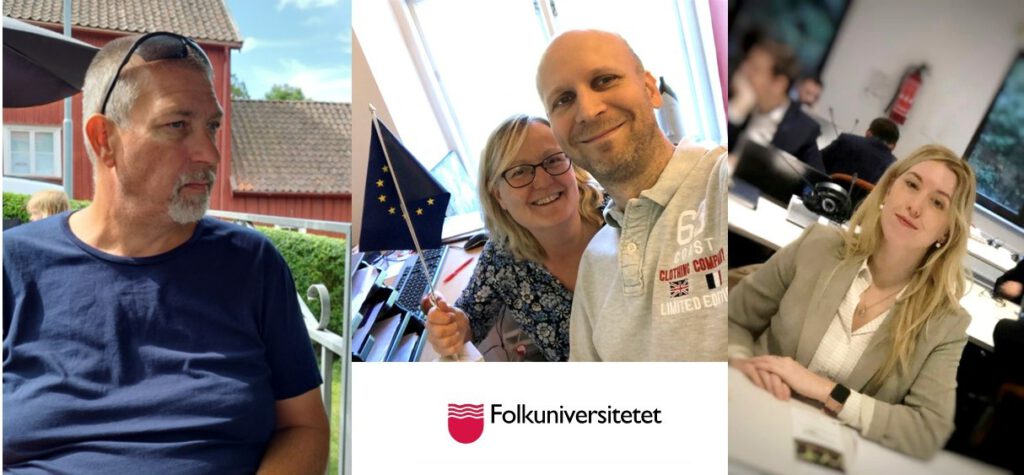
Partners working together for CABS

These resources and results are licenced under the Creative Commons Attribution-NonCommercial-ShareAlike 4.0 International Public License - Transfer to a third party under the same conditions. (CC BY-NC-SA 4.0) .
vhs Olching e.V.
vhs Olching e.V., Hauptstraße 82, D-82140 Olching
☎ +49 8142 654460 | ✉ info@vhs-olching.de | 🌐 https://www.vhs-olching.de
The Adult Education Centre “Volkshochschule Olching e.V.” (VHS) was founded in 1956. With over 60 years of experience in providing education for adult learners the non-profit association has achieved a high level of acceptance and recognition in Olching city and the whole region. The Centre differs substantially from other educational institutions by its unusual engagement for the spreading of European values and its contribution to migrants´ integration as well as its efforts to fight against social inequalities.
Thanks to its long experience in teaching and in taking care of the education of different generations, of people from different countries and with different needs and expectation, the VHS disposes of adequate response to the challenges issued from changes in population structures, from the needs for inclusion, from the immigration waves and from the insecurity on the job market This long experience is a guarantee for the success of this project.
High quality according to EFQM rules and reliability, personal involvement and best qualified tutors are the characteristics of our institution.
Because of the diversity of our courses we are able to provide an appropriate respond to the expectations and to the needs of course participants and to react quickly to meet new challenges e.g. teaching language, literacy and numeracy to migrants and illiterates. During the last years we have been teaching German to mothers in our course “Mama lernt Deutsch” to support their taking part to social life in Olching and as help to find jobs. For young people we organize preparation courses for the secondary modern school qualification as well as courses for “Learning to learn”, etiquette, job interviews and to increase self-confidence.
For business and jobs we are also continuously adapting our programme to the changes and the needs of the work market. Some main topics are actually “Cross-cultural skills improvement”, “Soft Skills” and “Latent skills and competences”.
Our institution offers a large range of different courses and workshops e.g. in art, philosophy, literature, health, IT, languages, social and political skills, courses for professional purposes, courses for house management and way of life and more. We carry through numerous courses for migrants and refugees from basic skills to professional development.
This year about 165 tutors will conduct about 650 courses and workshops. Over 60 language courses in about 15 languages are continuously taught by our high-qualified tutors. Furthermore in the course of years selected teachers have been trained for the qualification of examiners for different languages from A1 to B1 EU – levels. Tutors and staff actually have the possibility to take part to mobility within the Erasmus KA1 programme.
In our city and in the region the social impact of our association is extremely important as it largely reaches the local population (about 8,000 from 26,000 inhabitants in our city).
The VHS is independent of all political, religious and commercial interests.
The VHS initiated the project and will insure the coordination as well as the internal evaluation and take part to all activities and mobilities.
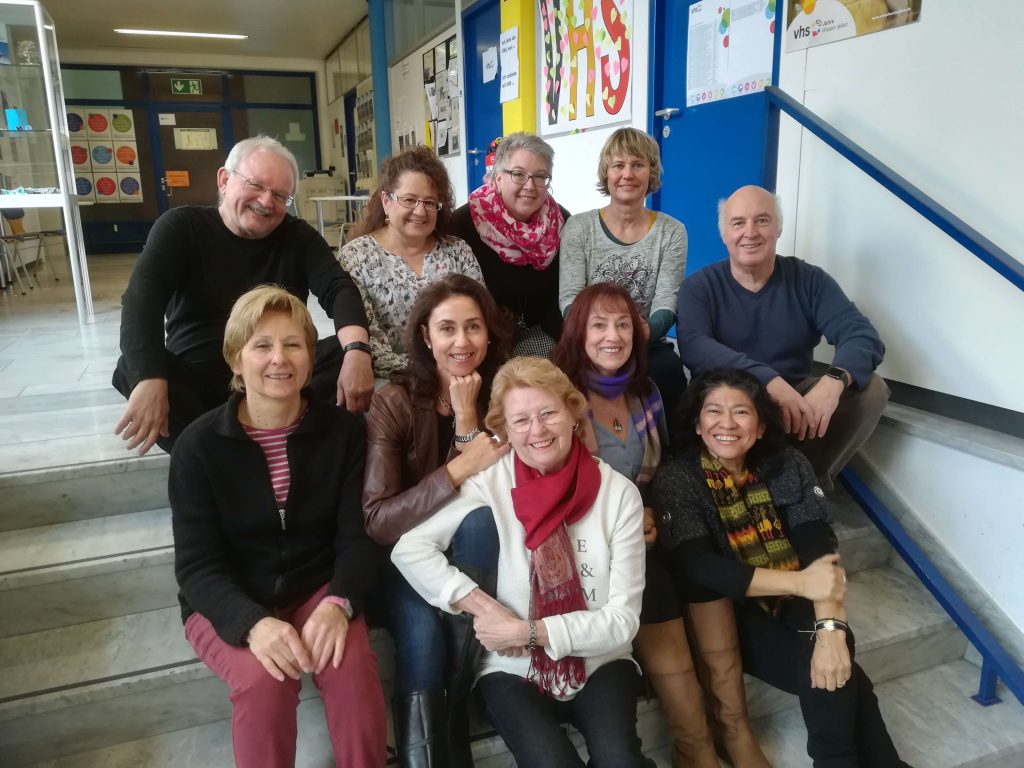
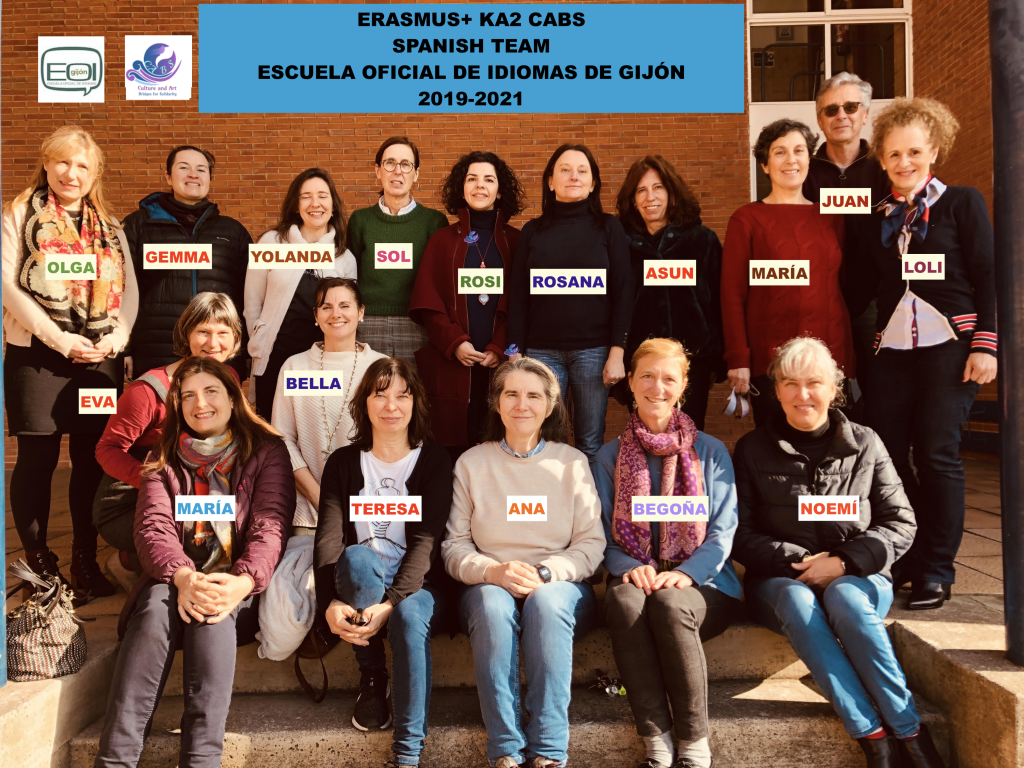
Escuela Oficial de Idiomas de Gijón
Escuela Oficial de Idiomas de Gijón, C/ Puerto de Vegarada S/N ES-33207 Gijón
☎ +34 985 393 393 | ✉ mdoloresfg@educastur.org | 🌐 http://www.eoigijon.com
The 25-year-old institution, the Escuela Oficial de Idiomas of Gijón (EOI Gijón), is a public organization specialized in teaching languages to adults. The school, second largest of its kind in the region, has a staff of 28 (18 teachers of English, 5 French, 4 German and 1 Chinese).
The School offers two different options. Learners can either attend classes in the school (there are over 1300 in English, over 350 in French, over 200 in German and 60 in Chinese) or they can sit the external exams that take place in June and September. The diploma issued by the Regional Education Authorities can be obtained in four levels A2, B1, B2 and C1. In 2020, we will be accrediting C2 in the three languages officially taught at the moment. The EOI of Gijón offers classes of Chinese thanks to an ongoing agreement with the Confucius Institute and the Regional Education Authorities. These are not accredited by levels, but learners are given a certificate of assistance and are encouraged to sit exams such as the HSK.
Our Institution is not only offering learners the possibility to assist affordable L2 classes, it is also giving many unemployed the opportunity to improve their professional prospects. What is more, university students, young professionals or even retired workers who like to travel attend classes as a way to improve their language skills. The organization is greatly valued by learners who, generally speaking, see it as an innovative way to learn languages, where they can not only acquire foreign language skills and cultural knowledge but also meet people with similar interests.
Since 2016, we have become increasingly aware of the need to adopt inclusion measures to ensure that all students have access to our educational programs under the same conditions. We have eliminated architectural barriers and have implemented specific measures for all students with special needs. We work closely with the Spanish Organization for the Blind (ONCE) as well as with the Regional Educational Services. Learning, transforming, improving and including are our objectives.
The school is obviously very involved in its opening its doors to the rest of the world as we strongly believe that language and culture are intertwined and cannot and should not be separated.
Consequently, we have been involved in previous Grundtvig and Erasmus+ projects. Our last venture took place in 2015 with Horizonte 2020: Internacionalización de la EOI de Gijón. The School’s project was awarded the second place in the KA104 action in Spain.
Kuopion kansalaisopisto
Kuopion kansalaisopisto,Puistokatu 20, FI-70110 Kuopio
☎ +35 844 7184 721 | ✉ marjo.markkanen@kuopio.fi | 🌐 http://kansalaisopisto.kuopio.fi
Community Colleges in Finland are educational non-profit establishments that have a statutory obligation to meet local educational needs, enhance equity and respond to social changes.
Community Colleges offer opportunities for a wide variety of recreational activities and study.
Learning is largely self-motivated and, as a rule, not aimed at achieving a formal qualification.
Kuopio Community College (Kuopion kansalaisopisto) was established in 1916 and it is one of the oldest and largest Community Colleges in Finland. We operate in a vast area of 7000 square kilometres both in the city and rural areas. Every year we offer about 2000 courses conducted by about 350 tutors. Tuition is offered in wide variety of subjects including about 15 different languages, IT, arts and crafts, music, sports, cooking and wellbeing. We also organise lectures on a range of cultural, social and political topics. In addition, we arrange events, concerts, theatrical performances, arts exhibitions etc. Every year more than 12 000 people, including adults, children, teens and senior citizens, attend our Community College. Our long and wide experience guarantee a successful contribution to the project.
Kuopio Community College promotes life-long learning, social cohesion, equality and active citizenship for all age groups. Integration and inclusion of all city dwellers is an important issue in Kuopio Community College. We offer courses for all, but special attention is given to provide possibilities to study and participate for immigrants, elderly people, unemployed, people with health, social or economic challenges or people who live at sparsely populated areas etc.
We have courses for adult immigrants in different levels starting from learning the alphabet and getting an idea how to read and write. Comprehensive school for adult immigrants (2 years) offers possibilities to learn Finnish language, basic maths, science, English and get information of the society and working life. We also have Finnish evening courses for beginners in which it is possible to continue studying until level B1.2. There are also some special courses like Finnish for young immigrants and we are planning to have some family learning courses focusing on Finnish language and integration as well.
Our teachers and staff are dedicated to develop their expertise and create new approaches on learning and teaching. The staff has participated in mobilities within the Erasmus + KA1 program before and is committed to continue working on international projects.
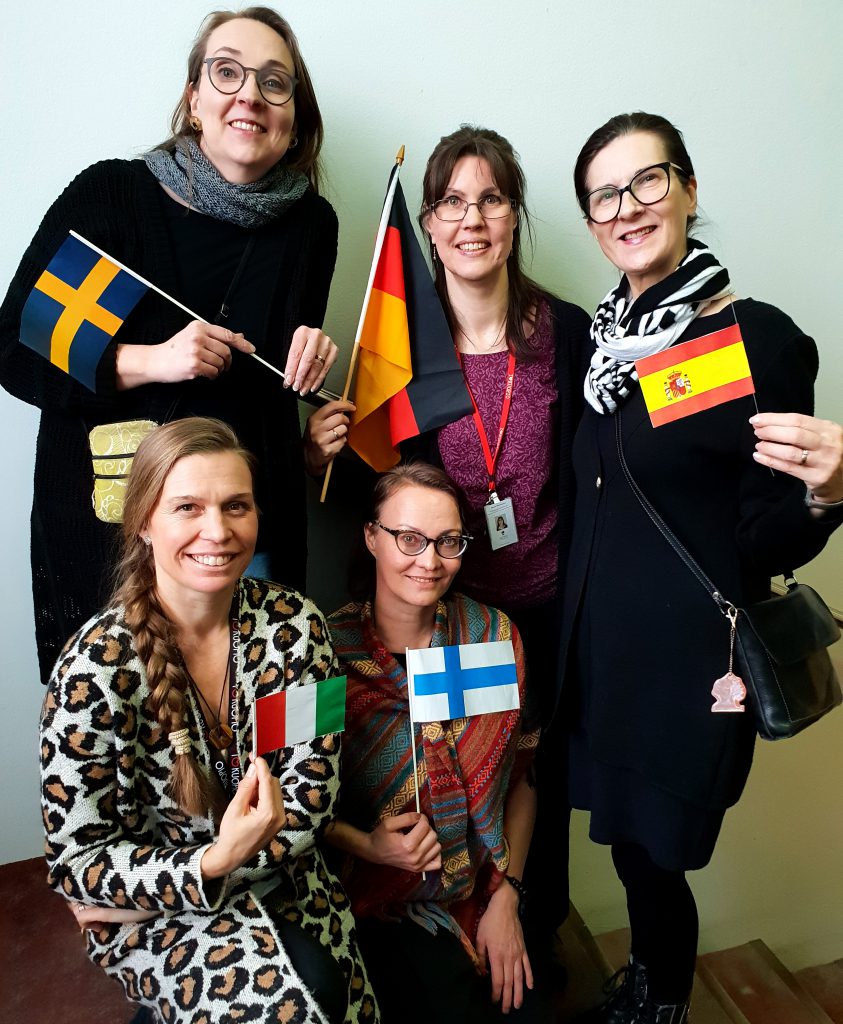
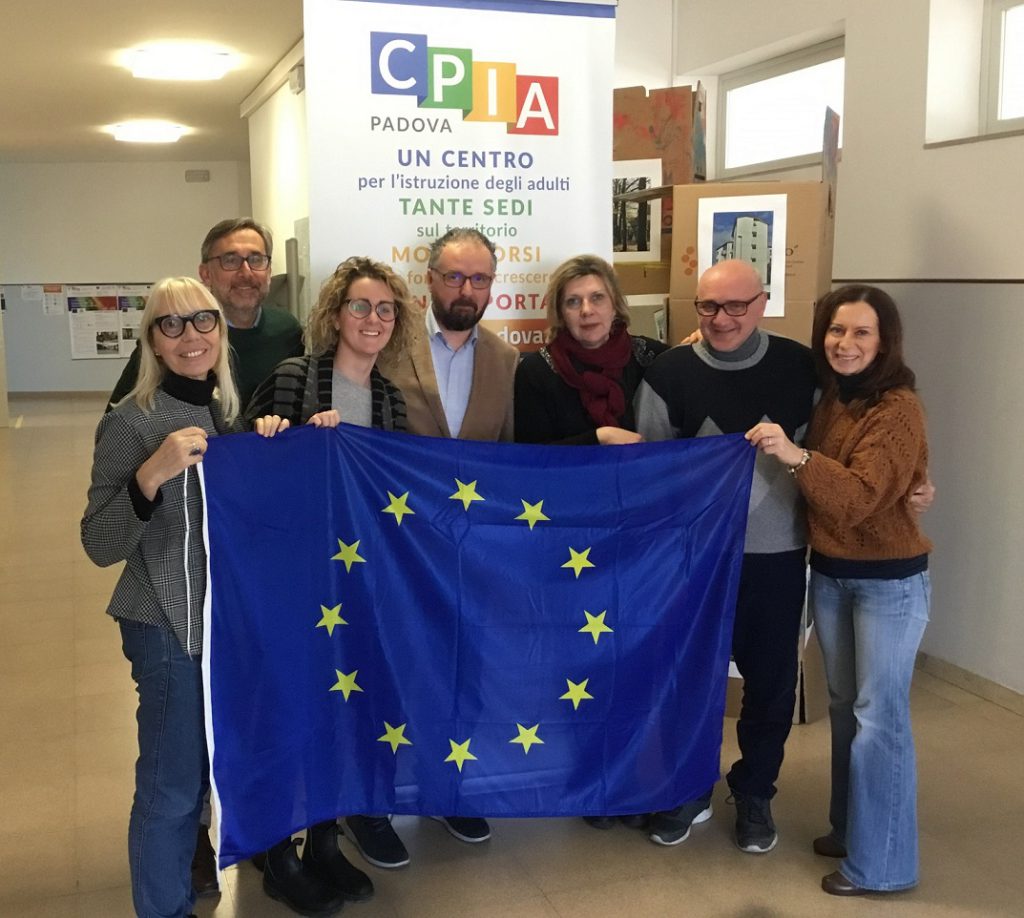
C.P.I.A. Centro Provinciale per l´Istruzione degli Adulti di Padova
C.P.I.A. Centro Provinciale per l´Istruzione degli Adulti di Padova, Via Dorighello 16 I-35128 Padova
☎ +39 49 8206 705 | ✉ gianni.franco@cpiapadova.it | 🌐 https://www.cpiapadova.edu.it
CPIA (Provincial Centre for Adult Education) is a public institution for adult schooling in Padua founded in 2015 by the reorganization of the former local CTP (Life-Long Learning Territorial Centre).
The CPIA of Padua is made up of ten locations situated in the province of Padua and it also includes a special sector working in the local state prison.
According to the legislation, the CPIA offers the following institutional courses for adults:
– Literacy and Italian language learning courses for foreign citizens;
– First Level course aimed at achieving the final qualification of the lower secondary education and the achievement of the certificate which attests the basic competence related to the compulsory education;
– Second level courses aimed at getting the high school diploma (evening courses), organized by high schools that have a networking programme with the CPIA, thanks to the current legislation.
The CPIA also offers short courses for a long-term education with both internal and external teaching staff; the main purpose of these activities is the key life-long learning competence, particularly digital
literacy courses and foreign languages, general cultural courses and citizenship are instituted.
In addition to that, CPIA carries out several research on adult education and, according to the European purposes, it undertakes the following guidelines:
a) analysis of the educational requirements countrywide;
b) focusing on the adults’ social and employment factors;
c) paying attention to adults’ learning needs;
d) reception points and orientation courses;
e) improving the quality and effectiveness of the adult education.
CPIA is also a public institution that builds lifelong education programmes countrywide by networking so CPIA collaborates with:
– local authorities;
– school institutions;
– regional vocational trainings;
– employment services;
– public undertaking for adult education;
– cultural facilities (such as local libraries, museums, theatres….);
– firms;
– associations ( charity institutions, cultural associations, non-profit organizations, leisure centres, families, voluntary organizations, etc….);
– universities.
The CPIA works with about sixty internal tenured teachers and fourty external teachers with a shortterm contract.
During 2017/18 people enrolled in courses supplied by the CPIA locations were about 2.500. They were divided into:
– Italian language courses for foreigners: 1.000;
– First level education courses: 300;
– Life long learning courses: 1.200.
Folkuniversitetet Kursverksamheten vid Lunds Universitetet
Folkuniversitetet Kursverksamheten vid Lunds Universitetet, Föreningsgatan 1,SE-29133 Kristianstad
☎ +46 455 367 874 | ✉ patric.kalnins@folkuniversitetet.se | 🌐 https://www.folkuniversitetet.se
Folkuniversitetet is an adult educational association that offers a wide range of adult education all over Sweden. It is an association of five foundations: the university extensions attached to the Universities of Stockholm, Uppsala, Göteborg, Lund and Umeå. We have a broad open educational program in a variety of subjects; we also run upper secondary schools, schools in higher vocational education, courses for seniors and training, labour market education and further education and training for working life.
Folkuniversitetet is independent of all political, religious and commercial interests.
International cooperation, pedagogic development, democracy and focus on the individual are central values for us. We have given important contributions to development of Swedish education and training, for example evening gymnasiums, language centres, Swedish for immigrants, college and ICT-based education. Visions and ideas for better learning methods are developed and tested in project groups, often in international cooperation. Coaching, mentorship, validation, entrepreneurship, learning in working life, empowerment and active guidance based on individual needs are examples of areas we are developing, and implementing to our own organisation.
Folkuniversitetet is engaged in adult education in Sweden. Our idea is that through knowledge and creativity give people opportunities for a richer life. Knowledge changes.
We believe that knowledge is a value in itself, for the individual and for society in general.
Folkuniversitetet is an educational association that will be a natural meeting point for people’s free search for knowledge – learning, cultural experiences and the opportunity for reflection.
Open to all we believe that it is needed many different pathways to lifelong learning to benefit all people. The popular education idea – everyone’s lifelong right to freely search for knowledge – permeate our education, our organization and our values. Folkuniversitetets starting point is that each person has needs for knowledge and our wide range of courses are available to all. When we plan and execute our activities we always start from the needs of the individual.
